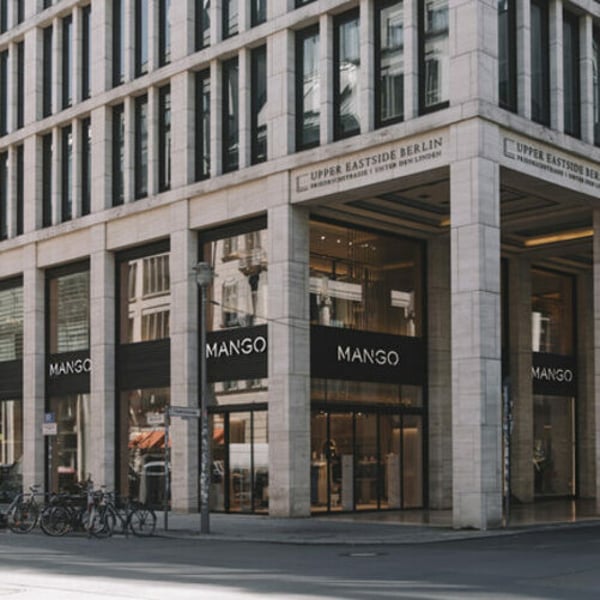Blog
Mango opens Berlin store and launches recycled Teen capsule with The Post Fiber

Translated by
Nazia BIBI KEENOO
Published
June 30, 2025
Mango has taken key steps in its 2024–2026 strategic plan by strengthening its international footprint and advancing its sustainability goals. The Catalan fashion company recently opened a flagship store in Berlin and invested in The Post Fiber, an emerging start-up specializing in recycling post-consumer textile waste into new fibers.

Located at 88–89 Friedrichstrasse, just steps from Berlin’s iconic Brandenburg Gate, the 1,100-square-meter flagship brings together Mango’s Woman, Man and Kids collections. Designed under the brand’s New Med concept, the space blends Mediterranean influences—natural materials, warm tones and architectural harmony—to create a sensorial experience that reflects Mango’s identity.
“We’re proud to strengthen our presence in Berlin—one of the world’s leading fashion capitals—by uniting three of our five lines under one roof,” said Daniel López, director of expansion and franchising at Mango. “This opening marks a significant step in our growth strategy, allowing us to deepen our connection with customers and deliver the full Mango experience in-store.”
With the addition of the new flagship, Mango now operates six stores in Berlin. The brand has maintained a presence in Germany since 1996 and, by the end of 2024, had over 450 points of sale across the country. Looking ahead, Mango plans to open 10 more locations in 2025, including a new flagship in Munich and a renovated store in Hannover.
The Post Fiber collaboration
As part of its wider growth strategy, Mango has invested in The Post Fiber, a start-up that transforms post-consumer textile waste into new fibers. The equity investment, made through Mango StartUp Studio, also led to the launch of a capsule collection under the Teen line, featuring garments made from recycled materials.
The limited-edition collection includes 10 pieces—such as T-shirts and sweatshirts—made primarily from 80% recycled fibers. Of that total, 15% comes from textile waste processed by The Post Fiber. All garments were dyed using the Pigmentura technique, which Mango says significantly reduces water and energy usage.
“Sustainability has long been a core pillar of Mango’s business model—a deeply rooted commitment and a driver of transformation that we’ve embraced for more than 20 years,” said Andrés Fernández, Mango’s director of sustainability and sourcing. “This collaboration with The Post Fiber represents a shared ambition to reshape the fashion industry through circularity—not only to reduce environmental impact, but also to create long-term value.”
As part of the agreement, Berta Moral, Mango’s director of the Teen and Kids lines, will join the board of The Post Fiber. “Collaborating with innovative start-ups like The Post Fiber allows us to increase the use of recycled fibers in our collections while also supporting the growth of businesses that are redefining the industry,” Moral said.
This initiative strengthens Mango’s broader sustainability roadmap, which includes a target to reach 40% recycled fibers across its collections by 2030. In the most recent fiscal year, 72% of Mango’s fibers were classified as lower-impact, with 25% being recycled. Other circularity projects include the brand’s work with the Retexcat initiative, which led to the release of two children’s garments made entirely from recycled materials.
Founded by Isak Andic in 1984, Mango currently operates in more than 120 markets with a retail network of over 2,800 points of sale. In fiscal 2024, the company posted 7.6% growth, generating €3.339 billion in revenue. Mango aims to reach €4 billion and add 500 new stores by the end of 2026.
Copyright © 2025 FashionNetwork.com All rights reserved.

